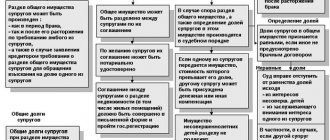Guardianship and trusteeship
| Item: | Family law |
| Kind of work: | Essay |
| Language: | Russian |
| Date added: | 07.04.2019 |
- This type of work is not a scientific work, it is not a finished final qualifying work!
- This type of work is a finished result of processing, structuring and formatting collected information intended for use as a source of material for independent preparation of educational work.
If you have a hard time understanding this topic, write to me on WhatsApp, we’ll look into your topic, agree on a deadline, and I’ll help you!
At this link you can find many ready-made essays on family law:
| Many ready-made essays on family law |
Check out these similar threads, they might be useful to you:
| Legal protection of surrogacy |
| The problem of surrogacy |
| Protecting the rights of large families (using the example of the Irkutsk region) |
| Property rights of minors |
Introduction:
The study of the institution of guardianship and trusteeship is very relevant at the present time. Its existence is interpreted by the need to replenish the legal capacity of persons partially or completely deprived of it, therefore, I think we can talk about the popularity and significance of this institution in relation to Russian citizens.
Until the 90s of the 20th century, the institute considered their basis in the Family Code of the Russian Federation, after which part of the powers in the field of activity of this institute passed to the Civil Code of the Russian Federation, mainly related to the implementation of property and other types of transactions, for example, rules on the participation of guardians (trustees ) in making transactions, issuance by the guardian (trustee) of consent to carry out transactions. Unlike the Civil Code, the Family Code pays more attention to the requirements for the personality of the guardian (trustee), the scope of the rights of the guardian (trustee) of the child in comparison with other persons (parents, relatives), establishing the personal qualities of the guardian (trustee).
Not only the Civil and Family Codes regulate relations related to guardianship, but also the Constitution of the Russian Federation, and the Federal Law “On Guardianship and Trusteeship” published this year, and the regulatory legal acts of the Russian Federation and its subjects adopted in accordance with them contain that share legal norms associated with the Institute of Guardianship and Trusteeship, which in their totality give an idea of this civil institution.
At the same time, in the legal literature there is no unified approach to defining the concept of guardianship and trusteeship, however, most modern authors reduce the essence of this concept either to state guardianship over an individual, or to legal representation, or to a method for determining the place of residence of a child left without parental care .
Therefore, the main goal of this work is to define the concept, functioning and application of the institution of guardianship and trusteeship.
To achieve this goal, the following tasks are expected to be completed:
- Definition of the concept, principles and objectives of guardianship and trusteeship;
- Coverage of the main forms and methods of application of guardianship and trusteeship;
- Consideration of the grounds for the emergence and termination of guardianship and trusteeship;
- Determination of persons who are guardians (trustees) and their wards.
Guardianship and trusteeship as a legal institution
Currently, guardianship and trusteeship is a comprehensive institution of civil and family law, including norms and public branches (administrative law) that provide all types of protection of the rights and legitimate interests of citizens who need to protect their personal and property rights.
Citizens of the Russian Federation enter into various legal relations, civil, political, economic, social, cultural.
The right of individuals to participate in such legal relations is determined by their civil legal capacity and legal personality.
If the legal capacity of a citizen, the ability to have and bear civil rights and obligations, arises at the moment of his birth and ends with his biological death, then it is recognized as equal for all citizens.
The legal capacity of citizens is the ability of a citizen to acquire and exercise civil rights, create civil duties and fulfill them; it does not belong to all citizens and is not the same for everyone; it arises in full only after a person reaches a certain age.
There are 4 categories of legal capacity of citizens:
- Full legal capacity (from the age of 18, in exceptional cases from the age of 16);
- Partial legal capacity of minors (14-18 years old);
- Partial capacity of young children (6-14 years old);
- Limited legal capacity, in the event of a person’s abuse of alcohol or drugs, as a result of which the person puts his family in a difficult financial situation.
The law also provides for cases of deprivation of legal capacity if, due to a mental disorder, a person cannot understand the meaning of his actions or control them. Such a person is recognized by the court as incompetent.
If a person has partial or limited legal capacity or does not have it, this means that he cannot fully independently exercise his rights and obligations. In such cases, the state, through the guardianship and trusteeship body, establishes guardianship or trusteeship in order to fill the missing legal capacity of such persons in order to ensure and protect their interests.
Guardianship and guardianship can equally be understood as a set of direct actions for the implementation of social guardianship, as well as legal relations, legal relations with the participation of a guardian (trustee) and a ward.
Of course, guardianship and trusteeship are also a legal institution, a set of rules governing the implementation of this type of social assistance to incapacitated and not fully capable persons.
The procedure for implementing guardianship is regulated by Article 32 of the Civil Code of the Russian Federation, according to which guardianship is established over two categories of citizens:
- Over minors (minors under the age of 14);
- Citizens declared incompetent by a court due to a mental disorder.
With the help of guardianship and trusteeship, persons who do not have legal capacity act as full-fledged subjects of various types of legal relations. Actions that are legally significant for them in their interests are performed by a guardian who exercises the absent legal capacity of their ward.
The procedure for the implementation of guardianship and trusteeship, provided for in Article 33 of the Civil Code of the Russian Federation, is carried out in relation to:
- Minors (14-18 years old);
- Citizens declared incompetent by a court due to alcohol or drug abuse;
- Able-bodied citizens, if due to health reasons they cannot independently exercise their rights and responsibilities (elderly people, disabled people).
Unlike guardianship, guardianship provides only actual or legal assistance to persons lacking legal capacity and protects them from abuse by third parties.
The decision to appoint guardianship and trusteeship is made by the guardianship and trusteeship body belonging to the local government, on the initiative of the head of the local administration, which is mandatory for all legal entities, individuals and public organizations.
Subsequently, after the appointment of a guardian or trustee, the guardianship and trusteeship authorities play an important role in the relations of citizens who have become guardians or trustees and are under guardianship and trusteeship. They carry out constant supervision (control) over the activities of guardians (trustees) as persons authorized by the state to take care of those in need of their help. Thus, this minimizes the possibility of an indifferent attitude of the guardian (trustee) towards his ward and makes him more responsible for his obligations.
The objectives of the institution under consideration are determined by the purpose of guardianship (trusteeship) as an individual form of placement for citizens. The tasks of the Institute of Guardianship and Trusteeship include the following tasks:
- Protecting the rights and interests of citizens is the central and main task;
- Ensuring the establishment of guardianship and trusteeship in relation to needy persons of an organizational nature and its implementation consists in identifying persons in need of guardianship and trusteeship and searching for citizens willing to accept guardianship and trusteeship over them;
- Ensuring a decent standard of living for citizens under guardianship and trusteeship through measures aimed at meeting the household needs of the ward (housing, food, clothing) as the basis for his normal life.
- Providing state support to citizens acting as guardians and trustees;
- Ensuring the most efficient functioning of the executive bodies of guardianship and trusteeship. Its implementation consists of financing, personnel and technical support for the activities of guardianship and trusteeship authorities.
An important point in the concept of the institution of guardianship and trusteeship are the basic principles of its organization:
- The principle of voluntariness, free acceptance of guardianship (trusteeship) and free refusal to perform the duties of a guardian (trustee);
- Control over the activities of guardians (trustees) and guardianship and trusteeship bodies through their supervisory (control) function;
- Ensuring maximum protection of the rights and interests of wards;
- State support for persons engaged in activities to protect the rights and legitimate interests of wards, and assistance in such activities, which may include the provision of social benefits to such persons.
The grounds for termination of guardianship and trusteeship are specified in Article 40 of the Civil Code of the Russian Federation:
- Recognition by the court of a completely incompetent adult citizen as capable as a result of his restoration, since he can defend himself, reasonably manage his actions and actions related to the protection of both personal and property rights. But guardianship is carried out only at the request of the guardian. In the absence of such, guardianship may be terminated at the initiative of the guardianship and trusteeship authorities;
- Recognition by the court of the lifting of the restriction of legal capacity of a person who has abused alcohol or drugs. Guardianship may be terminated at the request of the guardianship and trusteeship authorities;
- When the ward reaches 14 years of age, guardianship ends and guardianship begins;
- Reaching the age of 18, changing family legal status after marriage, emancipation or acquiring legal capacity. In such cases, a decision to terminate guardianship is not made;
- Violation of the conditions for the appointment of a guardian, trustee, provided for in paragraph 2 of Article 35 of the Civil Code of the Russian Federation.
- Death of a ward or his guardian (trustee).
Guardians and trustees as subjects of the institution of guardianship and trusteeship
The legal status of guardians and trustees and the procedure for their appointment are determined by the Federal Law “On Guardianship and Trusteeship”, the Civil Code of the Russian Federation, the Family Code of the Russian Federation and other regulatory legal acts of the Russian Federation and its constituent entities.
In accordance with Articles 32 and 33 of the Civil Code, guardians are representatives of wards by force of law and carry out on their behalf and in their interests all necessary transactions, and guardians agree to carry out those transactions that citizens under guardianship cannot make on their own. In addition, the guardian, in contrast to guardianship, is a kind of controller of the activities of the ward, and the guardian completely replaces the actions of the ward related to the creation and implementation of his rights and obligations.
If a guardian (trustee) is not appointed within a month, the performance of the duties of a guardian (trustee) is temporarily assigned to the guardianship and trusteeship body or to the relevant institution of the education system, health care, social protection authorities for full state care forever or for a certain period.
The responsibilities of a guardian (trustee) include:
- Caring for the maintenance of the ward, providing for his needs (providing food, clothing, care, treatment);
- Protection of the rights and interests of wards (housing, inheritance);
- In the case of guardianship of minors, the responsibilities of guardians fully coincide with the responsibilities of parents.
However, a sufficiently large volume of powers of guardians (trustees) can lead to their abuse of their rights, therefore paragraph 3 of Article 37 of the Civil Code of the Russian Federation establishes what guardians (trustees) do not have the right to:
- Make transactions with your wards, with the exception of transferring property to the wards as a gift or for free use;
- Represent the interests of the ward when making transactions or conducting legal cases between the ward and the spouse of the guardian (trustee) and their close relatives.
Supervision (control) of guardians (trustees) implies the accountability of the guardian (trustee). Every year, no later than February 1 of the current year, they prepare a written report to the guardianship and trusteeship authorities for the previous year on the storage, use of property and management of the ward’s property with documents (copies of sales receipts, tax receipts, insurance amounts and other payment documents). This report must contain information about the condition of the property and the place of its storage, the acquisition of property to replace alienated property, income received from the management of the ward’s property, as well as expenses incurred from the ward’s property. The report of the guardian or conservator must also indicate the dates of receipt of amounts from the ward's account and the dates of payments made.
Also, guardians (trustees) are responsible for making transactions on behalf of the wards in the manner established by civil law, are responsible for damage caused through their fault to the person or property of the ward (they compensate the ward), bear criminal liability, administrative liability for their actions or inaction in in the manner established by the legislation of the Russian Federation, the legislation of the constituent entities of the Russian Federation.
In accordance with Article 39 of the Civil Code of the Russian Federation, the release and removal of guardians and trustees from the performance of their duties is possible in the following cases:
- Return of a minor by parents or adoption, since the loss of parental care is not always permanent;
- When a ward is adopted by a guardian (trustee), the parent's consent is not required. The adoption of a ward by other persons, as a rule, requires the consent of his guardian (trustee);
- Upon expiration of the temporary guardianship period, a decision on the release of the guardian (trustee) is not required;
- If there are good reasons, illness, misunderstanding with the ward, then the ward can be placed in one of the government institutions (educational, medical, social, etc.). If such an arrangement is temporary, the guardian or conservator is not relieved of his duties;
- At the request of the guardian (trustee), but only if there is a good reason, for example, the unwillingness of the spouse to endure, family problems arise, loss of work by the guardian (trustee) and other serious economic difficulties for the guardian (trustee) and members of his family, inability to cope with the problems of the ward, the presence of a more suitable candidate for the role of guardian (trustee).
A guardian (trustee) cannot refuse to perform his duties without reason.
It is necessary to distinguish between the concepts of release and removal of a guardian (trustee) from the performance of their duties. In the first case, the legal relationship connecting the guardian (trustee) and his ward on the basis of his desire is completely terminated. Suspension does not depend on the will of the guardian (trustee), his intentions and plans. Thus, a guardian (trustee) may be removed from the performance of his duties if he uses guardianship or trusteeship for personal gain or leaves the ward without supervision and necessary assistance. In such cases, the guardianship and trusteeship authority has the right to forward all available materials to the prosecutor, the guardian (trustee) may be brought to administrative liability, and if this is related to child abuse, to criminal liability.
In the event of termination of guardianship or trusteeship, the person who performed the duties of a guardian or trustee must submit a report on his actions to the guardianship and trusteeship authority no later than three days. The guardianship or trusteeship agreement is terminated.
Features of establishing guardianship and trusteeship
The basis for establishing guardianship or trusteeship over minors is the fact that they have lost parental care due to various circumstances (death of parents, deprivation of their parental rights, recognition of parents as incompetent, illness of parents, etc.).
Guardianship is established over children under 14 years of age (clause 1 of Article 32 of the Civil Code of the Russian Federation), the guardian completely replaces his wards in property relations, and is his representative by force of law.
Guardianship is established over children aged 14-18 years; the guardian helps to exercise the rights and obligations belonging to a partially capable person, giving consent to such persons to carry out transactions and other legally significant actions.
However, if the guardianship and trusteeship authorities do not find a person who has expressed a desire to become a guardian (trustee) within the one-month period established by law, the minors are placed in educational, health and social protection institutions with full state support.
A person under 18 years of age is recognized by law as partially capable and has the right to enter into certain types of transactions:
- Minors aged 6 to 14 years (under 6 years are citizens recognized as incompetent), in accordance with paragraph 2 of Article 28 of the Civil Code of the Russian Federation, have the right to carry out small household transactions and transactions aimed at receiving gratuitous benefits that do not require notarization or state registration transactions for the disposal of funds provided by a parent, legal representative or with the consent of a third party for free disposal. Other transactions for minors are made on their behalf by representatives - parents, adoptive parents or guardians, who also bear all property liability for transactions made by minors;
- Minors aged 14 to 18 years, who, in accordance with Article 26 of the Civil Code of the Russian Federation, have the right to independently manage their earnings, scholarships and other income, exercise the rights of the author of works of science, literature, art and other results of intellectual activity, make and manage contributions to credit institutions, as well as carry out all those transactions that minors aged 6 to 14 years have the right to independently carry out. Other transactions are made with the written consent of parents, adoptive parents or guardians. For all completed transactions, persons aged 14 to 18 years bear independent property liability.
Guardianship and trusteeship are of a special nature and differ from other types of guardianship and trusteeship in their functions, the protection of personal and property rights of wards, as well as the implementation of the rights and responsibilities of parents (upbringing, maintenance and upbringing of children). Therefore, guardians and trustees are required to live with the child in the same family.
Children under guardianship and trusteeship retain the right to communicate with parents and relatives, if this does not contradict the interests of the child.
Termination of guardianship occurs in the following cases:
- When a child reaches a certain age upon reaching 14 years of age, guardianship becomes guardianship (Clause 2 of Article 40 of the Civil Code of the Russian Federation), when the ward reaches the age of majority;
- Recognition of a child as fully capable if he marries after reaching 16 years of age for a good reason (clause 2 of Article 21 of the Civil Code of the Russian Federation) or emancipation (work under an employment contract, entrepreneurial activity) (Article 27 of the Civil Code of the Russian Federation);
- Upon release from the duties of a guardian or trustee, when a minor is returned by his parents or adopted, since the loss of parental guardianship is not always permanent, but only if the parents’ claim is satisfied;
- When a ward is adopted by a guardian (trustee), the parent's consent is not required. The adoption of a ward by other persons, as a rule, requires the consent of his guardian (trustee);
- At the request of the guardian (trustee) in the presence of valid reasons (illness, change in property status, etc.);
- When a guardian (trustee) is released or suspended from performing his duties by the guardianship and trusteeship body (Article 39 of the Civil Code of the Russian Federation), if he performs them improperly, uses guardianship (trusteeship) for personal gain, leaves the ward without supervision and necessary assistance;
Establishment of guardianship and trusteeship over adult incompetent citizens
The only basis for establishing guardianship over an adult citizen is his recognition as incompetent due to a mental disorder; he cannot understand the meaning of his actions or direct them. (Article 29 of the Civil Code of the Russian Federation)
At the same time, a citizen does not have the right to make any transactions, including small household ones. All transactions on his behalf are carried out by his guardian (Article 29 of the Civil Code of the Russian Federation). Otherwise, such transactions are considered invalid.
The decision to recognize a citizen as incompetent due to a mental disorder is made by the court with reference to the conclusion of a forensic psychiatric examination, which is carried out on the basis of the Law of the Russian Federation “On Psychiatric Care and Guarantees of the Rights of Citizens in its Provision.”
In accordance with paragraph 3 of Article 5 of this law, restriction of the rights and freedoms of persons suffering from mental disorders only on the basis of a psychiatric diagnosis, facts of being under medical supervision in a psychiatric hospital or in a psychoneurological social security institution or special training is not allowed.
A citizen has the right to appeal the diagnosis given to him in court. In this case, a repeat examination is prescribed.
The Civil Procedure Code of the Russian Federation regulates in detail the procedure for declaring a citizen incompetent. The case may be initiated at the request of members of his family, public organizations, the prosecutor, the guardianship and trusteeship authority, or a psychiatric medical institution in the court at the citizen’s place of residence or at the location of the medical institution in which he lives. The application must contain facts that allow the citizen to be considered insane.
In order to prepare the case for trial, the judge appoints a forensic psychiatric examination. Based on the results of the examination, a conclusion is drawn up and attached to the case materials. The court hearing is attended by: the citizen himself, if possible due to health reasons, members of his family, the prosecutor, and a representative of the guardianship and trusteeship authority.
If a citizen is declared incompetent, the court is obliged, within three days from the date the court decision enters into legal force, to notify the guardianship and trusteeship authorities located at the place of residence of the person declared incompetent of the need to appoint a guardian for this person.
As in the case of guardianship (trusteeship) of minors, the decision to appoint a guardian for a citizen is made by the guardianship and trusteeship authority within a month from the date of receipt of the necessary information from the court.
If the court finds that the family members who filed the application acted in bad faith, the court will recover all legal costs from them.
Guardianship over a person under guardianship is terminated if the court, at the request of a guardian, family member, citizen, public organization, prosecutor or guardianship authority, psychiatric medical institution, on the basis of the relevant conclusion of a forensic psychiatric examination, makes a decision to recognize the person collected as capable.
Establishment of guardianship over adult citizens
Guardianship of minor citizens is established by a court decision in the event of a citizen’s abuse of alcohol or drugs, as a result of which he puts his family in a difficult financial situation. (Article 30 of the Civil Code of the Russian Federation).
The law specifies that the abuse of alcohol or drugs must be so excessive or systematic that it is contrary to the interests of his family members and entails excessive expenditure of money on their purchase. Limiting the legal capacity of such a citizen is primarily aimed at protecting the property interests of the family (spouse, adult children, parents, other relatives). Recognition of a citizen as a chronic alcoholic or drug addict does not make it possible to limit his legal capacity.
The procedure for limiting legal capacity is defined in the Civil Procedure Code. The case in court is considered with the mandatory participation of a citizen, a prosecutor and a representative of the guardianship and trusteeship authority.
If a citizen is recognized as having limited legal capacity, then control over him is established by a specially appointed person-trustee to carry out transactions, including receiving wages, other income and disposing of them, but he has the right to make one category of transactions without obtaining consent.
When guardianship is canceled by the court at the request of an individual, his guardian, a public organization, or a prosecutor, there are no grounds for limiting the legal capacity or family of a person declared incompetent or ceased to exist (divorce, death, separation from family) and, therefore, the obligation of this person to provide funds is eliminated for its maintenance, or in connection with the conclusion of a forensic psychiatric examination with justification for recovery or significant improvement in the condition of the ward.
Patronage
The Civil Code of the Russian Federation provides for the institution of guardianship and trusteeship in the form of patronage (assistant). This institution is applied in the case of an adult capable citizen who, for health reasons, cannot independently exercise and protect his rights and fulfill his duties.
A guardian (trustee) of an adult capable citizen can be appointed by the guardianship and trusteeship body only with the consent of such a citizen. The appointed trustee (assistant) must meet all the qualities established by the legislation of the Russian Federation and be appointed at the place of residence of the ward. The presence of children or other relatives who are required by law to provide support and material assistance is not an obstacle to establishing patronage.
A citizen under patronage can independently make any transactions, since he is fully capable.
The caregiver acts only as their assistant, advisor, and person providing practical assistance in everyday life. The disposal of property belonging to an adult capable ward is carried out by a trustee (assistant) on the basis of an assignment or trust agreement concluded with the ward. The execution of economic and other transactions aimed at maintaining and satisfying the household needs of the ward (purchase of food, clothing, medicines, household items, etc.) is carried out by his guardian (assistant) with the consent of the ward or on his actual instructions. For these purposes, the current income of wards is usually used (pensions, benefits, alimony and additional funds paid by their adult children in court, etc.).
Patronage of an adult capable citizen is terminated:
- At the request of a citizen under patronage;
- By placing the ward in a medical institution or social welfare institution;
- At the request of the trustee (assistant) in the presence of valid reasons that make it impossible for him to further fulfill his duties;
- When a guardian (assistant) is removed from the performance of his duties in case of improper performance, including using patronage for personal gain, leaving the ward unattended and without the necessary assistance;
- Upon the death of a ward (without making an appropriate decision).
To terminate patronage, a decision of the relevant guardianship and trusteeship authority is required (the adoption of an act by the head of the local administration).
Conclusion
In conclusion, we can say that the institution of guardianship and trusteeship is a rather complex, multifunctional and specific civil law institution.
Its appointment is determined depending on which interests and needs of the wards are to be protected as a priority. Thus, guardianship and trusteeship can refer to a form of arrangement for individuals (employment and housing), both for adults and for minors, as well as to the replacement of the will of a person with the will of a specific state or local authority when resolving a vital issue of private life.
Thus, guardianship and trusteeship by their actions satisfy both the interests of a private person in the self-preservation of life, health, rights, and public interests, public in general, in the preservation of citizens of a given society.
I believe that guardianship and trusteeship are a significant, important and, most importantly, necessary institution on a national scale, since its functioning, effectiveness and development determine the survival of not only certain categories of citizens and citizens, but also the entire society, as well as providing those in need with legal and social protection.
The concept and legal essence of guardianship and trusteeship of minors
Definition 1
Guardianship and trusteeship is a way of protecting the personal and property rights, freedoms and interests of minors, as well as assistance in their upbringing and education.
According to Article 38 of the Constitution of our country, motherhood, family, and childhood of a person are under the protection of the state. That is why the protection of minor children, upholding their rights and freedoms, as well as maintaining their interests are considered a task of federal importance.
The need for guardianship of minors is objectively justified, since currently the number of children who have lost their parents is constantly increasing. These children need care and support. This means that the regulation of those relations that are associated with guardianship and trusteeship is of particular importance in our time. Absolutely all innovations and amendments that are related to the guardianship of persons who have lost their families and parents must be analyzed from a scientific point of view, because it is necessary to expand the legal prerequisites related to the guardianship and trusteeship of children. In addition, it is necessary to eliminate unreasonable obstacles that may prevent the establishment of custody of the child. In this way it will be possible to ensure the interests of orphans.
Finished works on a similar topic
- Coursework: Legal essence of guardianship and trusteeship 420 rub.
- Abstract Legal essence of guardianship and trusteeship 260 rub.
- Test work The legal essence of guardianship and trusteeship 250 rubles.
Receive completed work or specialist advice on your educational project Find out the cost
When establishing guardianship, the age of the child must be taken into account. According to clause 1. Article 33 of the Civil Code of our country establishes guardianship over those children who are not yet 18 years old.
In Russian legislation, guardianship of minors has a long history and is one of the most familiar, stable and most often used methods of placing orphans in families in which guardians protect their rights and freedoms.
Guardianship and trusteeship are an important legal construct in both civil and family law. The civil legal significance of guardianship and trusteeship lies in the fact that children acquire legal capacity and education thanks to their guardians. And the family law aspect consists in performing the function of education, limiting the scope of application of guardianship and trusteeship exclusively in relation to minors.
If we talk about the essence of guardianship and trusteeship, it is worth noting that they are closely interconnected. Their relationship can be explained by the fact that both guardianship and guardianship create conditions for raising a child in a full-fledged family. In addition, they are aimed at preserving the rights of a child who has been taken into custody, since guardians always take care of their wards, help them, support them, protect them and teach them everything that will be useful to them in later life.
Are you an expert in this subject area? We invite you to become the author of the Directory Working Conditions
It is very important to immediately determine the purpose for which guardianship is established over a particular child, since the purpose is not only important theoretical, but also practical in establishing guardianship and trusteeship. Depending on the goal, the nature of work with a particular child will be determined. For example, the goal might be the child's education.
So, the purpose of establishing guardianship and trusteeship affects:
- choice of guardian;
- opportunities, rights and responsibilities of a guardian;
- establishing and applying control over the activities of the ward;
- reasons for refusal of guardianship and trusteeship;
- responsibility for incorrect or incomplete performance of all required duties.
The main purpose of establishing guardianship and trusteeship of children is considered to be not only the protection of their property interests, but also the transfer of the child to a good, full-fledged family. It is worth noting that an equally important goal of establishing guardianship can be considered to satisfy the interests of the state, which is associated with the protection and proper upbringing of a minor child. Some scientists believe that guardianship and trusteeship of children must be regulated not only by civil law, but also by family law.







